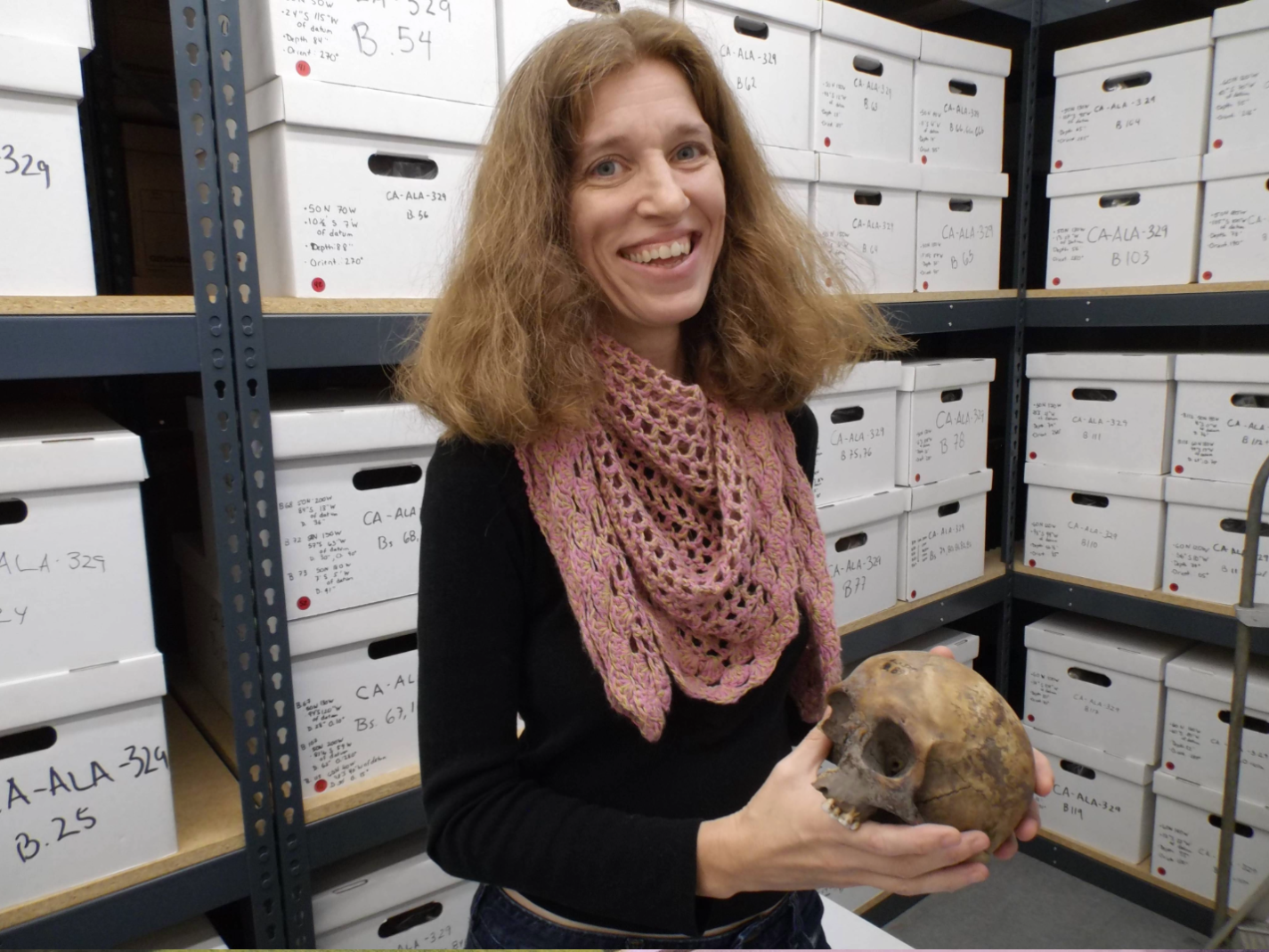
Editor’s Note: The following is an article originally published by the Observatory of University Ethics on January 25, 2025. It was translated into English from French by the Observatory before being edited to align with Minding the Campus’s style guidelines. It is crossposted here with permission.
San Jose State University
Elizabeth Weiss, a physical anthropologist and professor emeritus at San Jose State University, is the unwilling embodiment of the controversy that is shaking anthropology. With nearly 70 scientific articles and seven published books, this skeletal remains specialist is at the center of a debate mixing science, identity politics, and academic freedom. She agreed to answer our questions during a video interview—subtitled in French—that you can find here:
Her latest book, On the Warpath: My Battles with Indians, Pretendians, and Woke Warriors, is about her struggle against the growing politicization of her discipline. “Bone allows us to reconstruct the lives of people in the past, before they could leave a written record. But we are losing this essential data in the name of an ideological identity,” she says. Weiss says that U.S. laws on the repatriation of human remains, while initially limited to collections with clear ties to modern tribes, are now being misapplied. “Some remains, thousands of years old, are being returned to tribes with no proven connection.”
Science versus identity ideology
The anthropologist also points to a profound transformation of her discipline, once anchored in scientific rigor. She denounces a tendency to subordinate facts to cultural or religious narratives. “Today, if a tribe claims that a 10-year-old skeleton belongs to them, their story prevails, even if DNA proves otherwise,” she laments.
This confrontation sometimes reaches absurd heights. Weiss describes how some museums, under pressure, now refuse to exhibit human remains or even X-rays. “We have reached the point of censoring images of bones in scientific publications, on the pretext that they might offend sensibilities. It’s like a return to the time when human anatomy was taboo.”
A fragmented discipline
Beyond these controversies, Elizabeth Weiss criticizes a broader development: “Anthropology has become a study of the self. Many young researchers use the discipline to explore their own identity or to serve political agendas. This has nothing to do with rigorous research on humanity.”
This drift, she says, does not only concern cultural anthropology, often criticized for its methodological laxity, but extends to physical anthropology and archaeology. Even respected figures like Napoleon Chagnon, famous for his work on the Yanomami, have been attacked for conclusions deemed politically incorrect.
The price of courage
Weiss has paid dearly for her opposition. In 2020, after co-authoring Repatriation and Erasing the Past, a book critical of the repatriation of human remains, she was targeted by a cancellation campaign. Her university restricted her access to the collections she had studied for two decades, and she was ostracized by her peers. “They even locked the rooms where I worked and accused me of desecrating sacred beliefs.”
The Uncertain Future of Anthropology
“We are losing science,” warns Weiss, who sees this politicization as an existential threat. “When remains are buried or destroyed, when museums censor their exhibits, there is nothing left to study. Unlike other disciplines, once anthropological data is lost, it cannot be recreated.”
Elizabeth Weiss nevertheless remains attached to the idea of an anthropology anchored in science and the exploration of the past. But her testimony, opposing scientific rigor to identity pretensions, suggests an uncertain future for a discipline in search of meaning.
Photo of Elizabeth Weiss submitted by Elizabeth Weiss
Anthropology is a beautifully broad field, but our duty is to the the cultures we study. We treat human beings as simple scientific specimens, we regress as scientists. We are not studying microbes or plants, we study cultures and people with descendants and rights. Science does not trump people, ESPECIALLY not in the STUDY OF PEOPLE.
Yes! Exactly this!